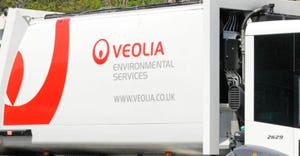Pennsylvania Recycling Industries Congress Highlights New Recycling Economy
The Pennsylvania Recycling Industries Congress highlights the new recycling economy.
March 1, 2011
Tim O'Donnell
The mid-February Pennsylvania Recycling Industries Congress was something new in the Keystone State — two major industry organizations getting together to showcase the importance of private-sector recycling to the state's economy. Both sponsors hailed the event as a success and a possible harbinger of similar events in the future.
In Pennsylvania, as in other states, many people still have an outdated understanding of recycling. The environmental benefits associated with recycling are well recognized. But lesser known outside the industry is that recycling has matured into a sizable business sector — one that is of growing importance to the state's economy.
The Pennsylvania Waste Industries Association (PWIA) and the Pennsylvania Recycling Markets Center (RMC) put together the Pennsylvania Recycling Industries Congress to drive home this message. PWIA represents private-sector waste companies that run large recycling plants that are pioneering single-stream and other new processing techniques (along with their traditional trash collection and landfill operations). RMC supports recycling enterprises through research and development of new and innovative technologies to minimize market barriers for recycled material; it also works with manufacturers to incorporate new types of recycled material feedstock into their operations to reduce costs and to increase revenues by designing new recycled content product lines.
The event helped show state legislators and members of the general public that recycling is more than just the processing of "waste" such as cardboard, paper, steel, organics, and empty glass, plastic, and aluminum containers into reusable materials. It brought home the fact that recycling now also encompasses a whole range of industries that take those recycled materials and turn them into new and valuable products.
For an entire day, PWIA and RMC held center stage in the East Wing Rotunda of the Pennsylvania Capitol in Harrisburg. Exhibitors from around the state presented displays and information as legislators, legislative staffers, state workers and members of the public streamed through the rotunda. Lieutenant Governor Jim Cawley and Acting Secretary of the Department of Environmental Protection Michael Krancer were among the visitors. Media coverage started early in the morning with live TV interviews conducted at a nearby materials recovery facility. Legislators were invited to educational sessions just off the display area in the rotunda, and members of both organizations fanned out to visit legislators in their offices throughout the day. The event concluded with an early evening reception where legislators and exhibitors met and exchanged views.
One of the most important messages of the congress was how RMC and PWIA stimulate growth in a range of recycling industries by connecting the supply and demand sides of the industry, and that jobs are created by collecting, processing, re-using, remanufacturing and delivering to market "waste" material once thought to have no value.
The Northeast Recycling Council did a study in 2009 that indicated that the 3,803 Pennsylvania establishments involved in recycling, reliant on recycling, or involved in reuse and remanufacturing generated 52,316 jobs with an annual payroll totaling $2.2 billion, while also bringing in gross receipts of $20.6 billion.
PWIA did an economic study of its own in 2007. It measured the economic contribution of the private-sector waste industry in Pennsylvania, which overlaps with recycling. The study found that the waste industry generated nearly 31,500 jobs and contributed more than $3 billion a year to the Pennsylvania economy in expenditures, purchasing and spending from industry wages. That impact has almost certainly grown since the study was finished.
The two studies measure different things; technically, they're apples and oranges. But both point to the same new economic reality of recycling, namely that the related waste and recycling industries together are a big deal — and a good deal — for Pennsylvania's economy.
If you consider that each Pennsylvanian generates about 4.5 pounds of waste per day (a conservative figure calculated using county-by-county data from the Pennsylvania Department of Environmental Protection and eliminating material not considered municipal solid waste) and that with previous approaches the state's recycling rate has remained at 35 percent, it's easy to see that, with the recent advent of new recovery technologies, the amount of recycling has nowhere to go but up. And both PWIA and RMC share a vision of the future of recycling in Pennsylvania, one that rests largely in the hands of private enterprise.
State government has played an important role in the development of recycling in Pennsylvania. It established a framework through laws such as Act 101, which implemented mandatory recycling for more than 400 communities in 1988. It also seeded the growth of locally based recycling programs through grants and other support with public money.
But now recycling and its related industries have matured and are ready and able to stand on their own. In the past few years, private-sector companies have invested more than $66 million in Pennsylvania in new recycling facilities, high-tech sorting and processing equipment, and a variety of re-use and re-manufacturing ventures, all of which produce new jobs.
They've done this because they see recycling and its related industries as profit-making enterprises — as good businesses, not just as environmentally conscious programs requiring a line item in a government budget. These processors and manufacturers are only beginning to scratch the surface potential of this segment of our economy, but they firmly provide all the evidence necessary that the innovation and vitality of private enterprise are alive and well in Pennsylvania.
Tim O'Donnell is president of the Pennsylvania Waste Industries Association. Michele Nestor is board chair of the Pennsylvania Recycling Markets Center.
Related Stories
You May Also Like


